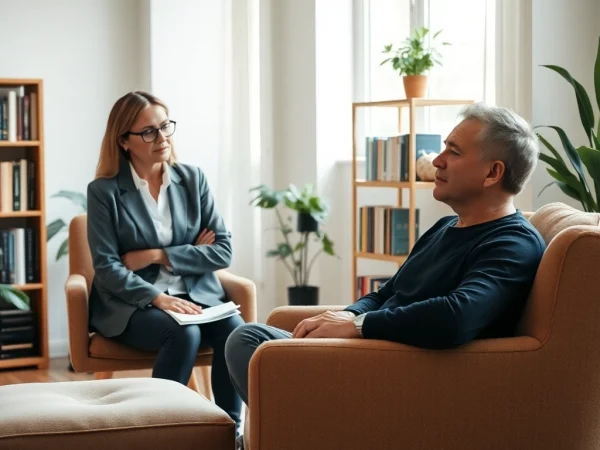Strategies to Effectively Cope with Dealing with Anxiety in Daily Life
Understanding Anxiety and Its Impact
What is Anxiety?
Anxiety is a natural response to stress and can be defined as a feeling of worry, fear, or apprehension about future events. For many people, anxiety is experienced in moments of high pressure or uncertainty, such as during exams, public speaking, or when facing significant life changes. However, when anxiety becomes persistent and overwhelming, it can interfere with daily activities and lead to anxiety disorders, which are characterized by excessive and irrational fears.
Common Symptoms of Anxiety
Recognizing the symptoms of anxiety is vital in managing it effectively. Common symptoms include:
- Constant worry or fear about everyday situations.
- Restlessness or feeling on edge.
- Difficulty concentrating or mind going blank.
- Physical symptoms like a racing heart, sweating, or trembling.
- Sleep disturbances, including insomnia or restless sleep.
These symptoms can vary from person to person, making it crucial to understand one’s own experience with anxiety.
Recognizing Triggers for Dealing with Anxiety
Identifying triggers is a critical step in dealing with anxiety. Triggers can be anything from work stress to specific social situations. Keeping a journal to track when anxious feelings arise can help pinpoint these triggers, which is essential for developing effective coping strategies.
Proven Techniques for Dealing with Anxiety
Relaxation Strategies: Breathing and Visualization
Relaxation techniques are proven methods to reduce anxiety levels. One of the simplest yet most effective strategies is deep breathing. By focusing on your breath, you can help calm your mind and body. Try the following technique:
- Find a quiet and comfortable place to sit or lie down.
- Inhale deeply through your nose for a count of four, allowing your abdomen to expand.
- Hold your breath for a count of four.
- Exhale slowly through your mouth for a count of four.
- Repeat this process several times until you feel more relaxed.
Another effective relaxation technique is visualization. Picture a peaceful scene, such as a beach or forest, and immerse yourself in the sights, sounds, and sensations. This method can help distract your mind from anxious thoughts and promote a sense of calm.
Mindfulness Practices for Daily Use
Mindfulness involves staying present in the moment and is a powerful tool for managing anxiety. Mindfulness practices, such as meditation and yoga, can significantly decrease anxiety levels. Start by setting aside a few minutes each day to practice mindfulness. Begin with simple techniques:
- Mindful Breathing: Focus on your breath, noticing the sensations as you inhale and exhale.
- Body Scan: Mentally scan your body from head to toe, recognizing any tension and consciously relaxing those areas.
Regular mindfulness practice can foster resilience against anxiety by training your mind to respond more positively to stressors.
Physical Exercise and Its Benefits
Regular physical activity is one of the most effective ways to combat anxiety. Exercise releases endorphins, the body’s natural mood lifters. Activities such as jogging, swimming, or even a brisk walk can help lower anxiety levels. Aim for at least 30 minutes of moderate exercise most days of the week.
Group exercises, like team sports or group fitness classes, can also provide the added benefit of social interaction, which is vital for those trying to manage anxiety.
Professional Help for Dealing with Anxiety
When to Seek Therapy or Counseling
Knowing when to seek professional help is essential in managing anxiety effectively. If your anxiety persists despite self-help measures, interferes significantly with your daily life, or causes you distress, consider reaching out to a mental health professional. Therapy can provide you with tailored strategies and support.
Cognitive Behavioral Therapy Techniques
Cognitive Behavioral Therapy (CBT) is a highly effective treatment for anxiety disorders. CBT focuses on changing negative thought patterns and behaviors that contribute to anxiety. Techniques used in CBT may include:
- Challenging Negative Thoughts: Identifying and reframing irrational beliefs.
- Exposure Therapy: Gradual exposure to feared situations in a controlled environment.
- Behavioral Activation: Engaging in pleasurable activities to relieve symptoms.
CBT is evidence-based and supported by a wealth of research, making it a go-to option for many experiencing anxiety disorders.
Medication Options: What You Need to Know
For some individuals, medication may be necessary to manage anxiety effectively. Common classes of medications include:
- Antidepressants: Often prescribed for anxiety, these medications can help balance brain chemicals.
- Benzodiazepines: Helpful for short-term relief but carry a risk of dependency.
- Beta-Blockers: Can help manage physical symptoms of anxiety, such as a racing heart.
Always consult with a healthcare provider to determine the most appropriate treatment plan tailored to your needs.
Building a Support System
Importance of Talking to Loved Ones
Having a strong support system is invaluable when dealing with anxiety. Sharing your feelings with friends, family, or loved ones can alleviate the burden and provide comfort. They can offer perspective and support and remind you of your strengths and achievements.
Finding Support Groups
Support groups can be a powerful resource for individuals coping with anxiety. These groups allow individuals to connect with others who share similar experiences, providing a sense of belonging and understanding. Look for local mental health organizations or online platforms that host support groups.
Online Resources and Communities
The internet is a treasure trove of resources for dealing with anxiety. Websites, online forums, and mobile apps can provide valuable information, coping strategies, and a community of support. Ensure that the sources are credible and rely on evidence-based information.
Long-Term Management of Anxiety
Creating a Personal Coping Plan
Establishing a personal coping plan can be beneficial in managing anxiety in the long term. This plan may include a combination of the techniques discussed, such as regular exercise, mindfulness practices, and a support system. By outlining specific actions to take when feeling anxious, you create a roadmap that empowers you to manage your anxiety more effectively.
Long-Term Lifestyle Changes
Making long-term lifestyle adjustments can have a significant impact on reducing anxiety. Focus on:
- Maintaining a balanced diet rich in fruits, vegetables, and whole grains.
- Establishing a regular sleep schedule to enhance your overall well-being.
- Reducing alcohol and caffeine intake, as these substances can exacerbate anxiety symptoms.
These changes promote both physical and mental health, leading to improved resilience against anxiety.
Continuous Learning about Dealing with Anxiety
Lastly, continuous education on anxiety and coping strategies can bolster your confidence and effectiveness in dealing with anxiety. Consider reading books, attending workshops, or seeking resources from mental health professionals to stay informed about the latest techniques and findings in anxiety management.










